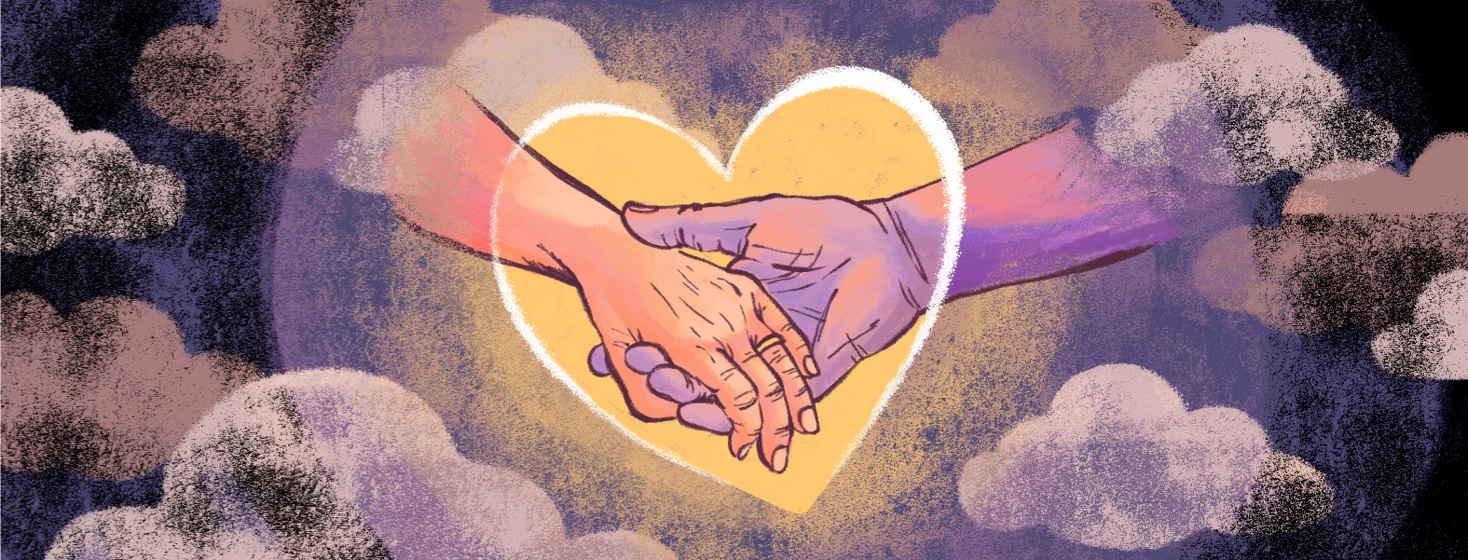In Sickness and in Health: Why Unconditional Love Matters with Chronic Illness
I did not receive my narcolepsy diagnosis until about year after I took my vows with my husband.
We, like many other couples, opted for traditional vows, one of which is "in sickness and in health." At the time, neither of us knew the health journey we would take just after we celebrated our first wedding anniversary.
Anyone can become disabled at any time
We are taught that when we take those vows, our love is to be unconditional. That is why I was in shock one morning as I stumbled upon an article about a bride wanting to remove "in sickness" and replace it with "in happiness."
According to the CDC, 1 in 4 adults live with at least one disability.1
It is also a group that someone can become a part of at any point in our lives, regardless of how much we strive to live healthy lives. Those of us living with narcolepsy are a part of this population.
The promise of love 'until death do us part'
The thought of saying "in happiness and in health" compared to "in sickness and in health" brought me to the verge of tears. The idea of my marriage being conditional on my health, something that is not only beyond my control but could change in a second, made me thankful for having a partner that does not put that condition on me — but it made me hurt thinking about those that have had that condition put on them.
I could feel the blood drain from my face as I read the article. How could someone place a condition of health on their love to someone they had promised to love "until death do us part"?
Our health can be fragile and out of our control
Living with narcolepsy along with other invisible disabilities, I know all too well what it feels like to feel like a burden. Due to my illness, I often need support, but the need for support does not diminish the value I bring to the relationship, nor does it for anyone else in a relationship who lives with narcolepsy or any other disability.
The reality is, at any point in time, anyone could become a part of the population with a disability, whether it be a result of a physical injury, an illness, or another cause. Health is so fragile and often out of our hands.
During the COVID-19 pandemic, we saw how easily this could happen. I believe this was a concept that many individuals who had the blessing of good health had not realized before. We watched as many healthy individuals would contract the virus and, instead of recovering, would deal with symptoms lasting months, years, or even ongoing all from a single infection. This seemed to blow many of my friends' minds. But it was very reminiscent of my own journey.
I was healthy one day, and then I was not
I was in fifth grade and a fairly normal and healthy kid. Then there was a period where, between classmates, friends, and my siblings, we all seemed to continuously pass strep throat back and forth for several months. This was topped off for me with a case of mono. Most of my classmates recovered just fine, but unfortunately, I did not. This is when I remember many of what I now know were early narcolepsy symptoms began. I was healthy one day and then I was not.
Unfortunately, that is the reality for many of us with narcolepsy. We were healthy and then we weren’t. But that does not mean we are not worthy of unconditional love in a healthy relationship.
We are all worthy of unconditional love
I do not know if this bride went through with taking "in sickness and in health" out of her vows or not. But I believe that the fragility of our own health is the reason this is part of those vows that have been used throughout time. Despite our health, we are all worthy of unconditional love in a healthy relationship.
No relationship is all sunshine and roses; we all have ups and downs, and sometimes changing health is part of those ups and downs. Switching the vows to "in happiness and in health" seems to put a condition on the relationship that it is only worth being there for the good times.

Join the conversation